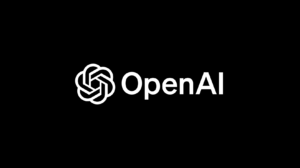OpenAI Appoints Labor Leader Dolores Huerta and Other Philanthropic Advisors as It Transitions to For-Profit Model

OpenAI Forms Advisory Board to Enhance Philanthropy Efforts
OpenAI, the organization behind the popular AI tool ChatGPT, has recently established a temporary advisory board aimed at guiding its philanthropic ventures as it transitions into a for-profit entity. This shift is particularly significant as it seeks to redefine its goals and responsibilities in the rapidly evolving field of artificial intelligence.
Notable Members of the Advisory Board
Among those appointed to the advisory board is Dolores Huerta, a renowned labor leader who celebrated her 95th birthday recently. Huerta co-founded the first farmworkers union alongside Cesar Chavez in the early 1960s. Her involvement in this advisory group could influence the direction of OpenAI’s philanthropic initiatives, which the organization emphasizes will consider both the potential benefits and the risks associated with artificial intelligence.
The other board members include:
- Monica Lozano: Former executive in Spanish-language media
- Robert Ross: Recently retired president of The California Endowment
- Jack Oliver: An attorney and veteran Republican campaign fundraiser
Daniel Zingale, a former advisor to three California governors, will facilitate the group. Zingale noted Huerta’s importance in discussions surrounding AI, reflecting on her extensive experience in social activism over the last half-century.
The Advisory Board’s Role and Timeframe
The advisory board has a limited window to operate, with just 90 days to formulate their recommendations. These suggestions, while influential, will not be binding. Nonetheless, the presence of a respected figure like Huerta adds a vital perspective to the discussion about how to ensure that AI technologies serve society responsibly.
OpenAI’s Transition to a For-Profit System
OpenAI began its journey in 2015 as a non-profit research lab committed to developing AI that benefits humanity. Over time, it established a for-profit branch to attract investment, with plans to fully transition into a for-profit corporation. This shift, however, involves multiple regulatory hurdles, including the requirement to gain approval from the attorneys general of California and Delaware. The transition also includes a complex process of assessing and possibly buying out the nonprofit’s substantial assets and addressing ongoing lawsuits, including one from co-founder Elon Musk.
Recently, OpenAI revealed its ambition to raise $40 billion in funding, which would elevate its overall value to approximately $300 billion. This massive financial goal reflects the intense commercial interest in AI and its applications across various sectors.
Community Engagement and Concerns from Nonprofits
The newly formed advisory board is expected to gather input from community leaders on how OpenAI’s philanthropy can tackle pressing societal challenges. Zingale highlighted the importance of empowering everyday people and community organizations to benefit from AI technologies.
However, not everyone views the formation of this board positively. A group of nonprofit leaders in California has recently called on Attorney General Rob Bonta to investigate OpenAI’s activities and prevent its planned transition to a for-profit model. They express concerns that this change could threaten the charitable assets of the organization and emphasize the need for transparency in how these resources are used.
Orson Aguilar, the CEO of LatinoProsperity, criticized the advisory board as a potential distraction from what he views as the principal issue: the possible misallocation of OpenAI’s nonprofit assets for private benefit.
OpenAI’s Path Forward
As OpenAI navigates this complex shift from non-profit to for-profit, the advisory board’s feedback, community engagement, and ongoing scrutiny from regulatory bodies will play critical roles in determining how the organization balances its profit ambitions with its founding mission to enhance human welfare through safe AI innovations. The conversations and decisions made during this transitional phase may set significant precedents for the future of artificial intelligence and its societal implications.






